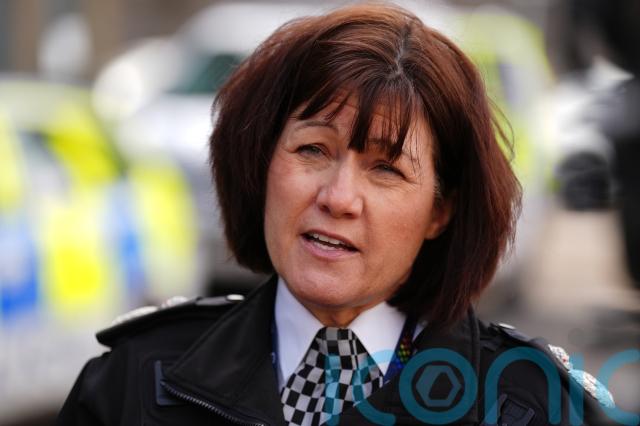
Campaigners have urged Police Scotland to clarify whether they will reject UK policing guidance regarding criminal investigations into women experiencing pregnancy loss.
A letter has been sent to Chief Constable Jo Farrell urging her to publicly clarify that National Police Chiefs’ Council (NPCC) recommendations on abortion and stillbirth will not be adopted in Scotland.
Charity Engender united with 28 other women’s rights, health, and human rights groups in the letter to condemn guidance that it said could subject grieving women experiencing pregnancy loss to criminal investigation.
The signatories, which include abortion care providers and campaigners, healthcare bodies, human rights and equalities organisations, and trade unions, have condemned the NPCC guidance as “disgraceful” and “misogynistic by design”.
It comes after legislation which will see abortion decriminalised in England and Wales for women terminating their own pregnancies cleared the Commons earlier this week through a successful amendment to the Crime and Policing Bill.
Campaigners warn a lack of clarity remains on whether the NPCC guidelines could apply or be used in Scotland.
Data published last year by Engender found several abortion related cases have been pursued by police in Scotland in the last 20 years.
Engender claimed the “invasive” guidance includes searching women’s homes and treating them as crime scenes, confiscating digital devices and reviewing personal data, accessing medical records and reproductive tracking apps, and subjecting families to criminal investigation during bereavement.
The Royal College of Obstetricians and Gynaecologists have described the guidance as “shocking”, and clinicians warn it creates a “climate of fear” among healthcare staff.
The letter warned marginalised communities would be disproportionately impacted by such investigations, and said evidence from England shows similar police actions have caused “life-changing harm”, resulting in severe mental health impacts, debt, and children taken into custody.
The World Health Organisation has explicitly called on governments to stop arrests, investigations and prosecutions for abortion and to suspend the criminal law being applied to pregnancy loss – a position supported by every major UK medical body.
Engender executive director Catherine Murphy said: “Women now find themselves in the perilous situation where the laws governing abortion in Scotland have not kept up with advancements like abortion medicines and reproductive tracking apps.

“Police Scotland, the Crown Office and Scottish Parliament need to act urgently to end the scope for prosecutions and bring the law into the 21st century.
“The NPCC guidance describes women being targeted as ‘criminal suspects’ during one of the most sensitive and vulnerable experiences of their lives – pregnancy loss. It’s unconscionable.”
Jill Wood, policy manager at Engender, added: “Police Scotland has a choice. They can follow the lead of health experts and human rights bodies, or they can adopt guidance that will cause demonstrable harm to women in Scotland.
“We urge them to choose compassion over criminalisation.”
Dr Sinead Cook, chairwoman of the Faculty of Sexual and Reproductive Healthcare Scotland committee, said: “Women experiencing pregnancy loss need compassionate care, not criminal investigation.
“These methods violate fundamental rights to dignity, privacy and healthcare.”
Signatories to the letter include Abortion Rights Scotland, Rape Crisis Scotland, the Royal College of Midwives, the STUC, the Royal College of Obstetricians and Gynaecologists, and the Equality Network.
A Police Scotland spokesperson said: “We have received correspondence and a reply will be provided in due course.”
A spokesperson for the Crown Office and Procurator Fiscal Service said: “Careful consideration will be given to any reports of alleged criminal conduct which are submitted by the police, or any specialist reporting agency, to the Procurator Fiscal.
“Criminal proceedings will be raised if the reports contain sufficient evidence of a crime and if it is appropriate and in the public interest to do so.
“Legislative reform is a matter for elected representatives and Parliament and which COPFS contributes to through established processes.”
Public health minister Jenni Minto said: “The Scottish Government believes that all women should have access to abortion services should they require them.
“An expert group was established in August 2024 and will provide recommendations based on a thorough assessment of the current legal framework on abortion.
“This review covers all aspects of the current law relating to abortion, rather than just criminal offences, to ensure that any future proposals consider major shifts in clinical practice since 1967.
“It will therefore be important to ensure careful consideration of the group’s recommendations. We will need to wait for the outcomes of this review before considering changes to abortion law.”
Subscribe or register today to discover more from DonegalLive.ie
Buy the e-paper of the Donegal Democrat, Donegal People's Press, Donegal Post and Inish Times here for instant access to Donegal's premier news titles.
Keep up with the latest news from Donegal with our daily newsletter featuring the most important stories of the day delivered to your inbox every evening at 5pm.